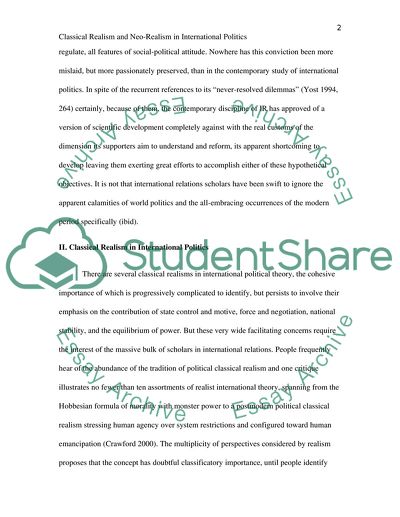Cite this document
(Classical Realism and Neo-Realism in International Politics Coursework, n.d.)
Classical Realism and Neo-Realism in International Politics Coursework. Retrieved from https://studentshare.org/politics/1718261-theories-and-research-strategies-in-international-politics
Classical Realism and Neo-Realism in International Politics Coursework. Retrieved from https://studentshare.org/politics/1718261-theories-and-research-strategies-in-international-politics
(Classical Realism and Neo-Realism in International Politics Coursework)
Classical Realism and Neo-Realism in International Politics Coursework. https://studentshare.org/politics/1718261-theories-and-research-strategies-in-international-politics.
Classical Realism and Neo-Realism in International Politics Coursework. https://studentshare.org/politics/1718261-theories-and-research-strategies-in-international-politics.
“Classical Realism and Neo-Realism in International Politics Coursework”, n.d. https://studentshare.org/politics/1718261-theories-and-research-strategies-in-international-politics.


